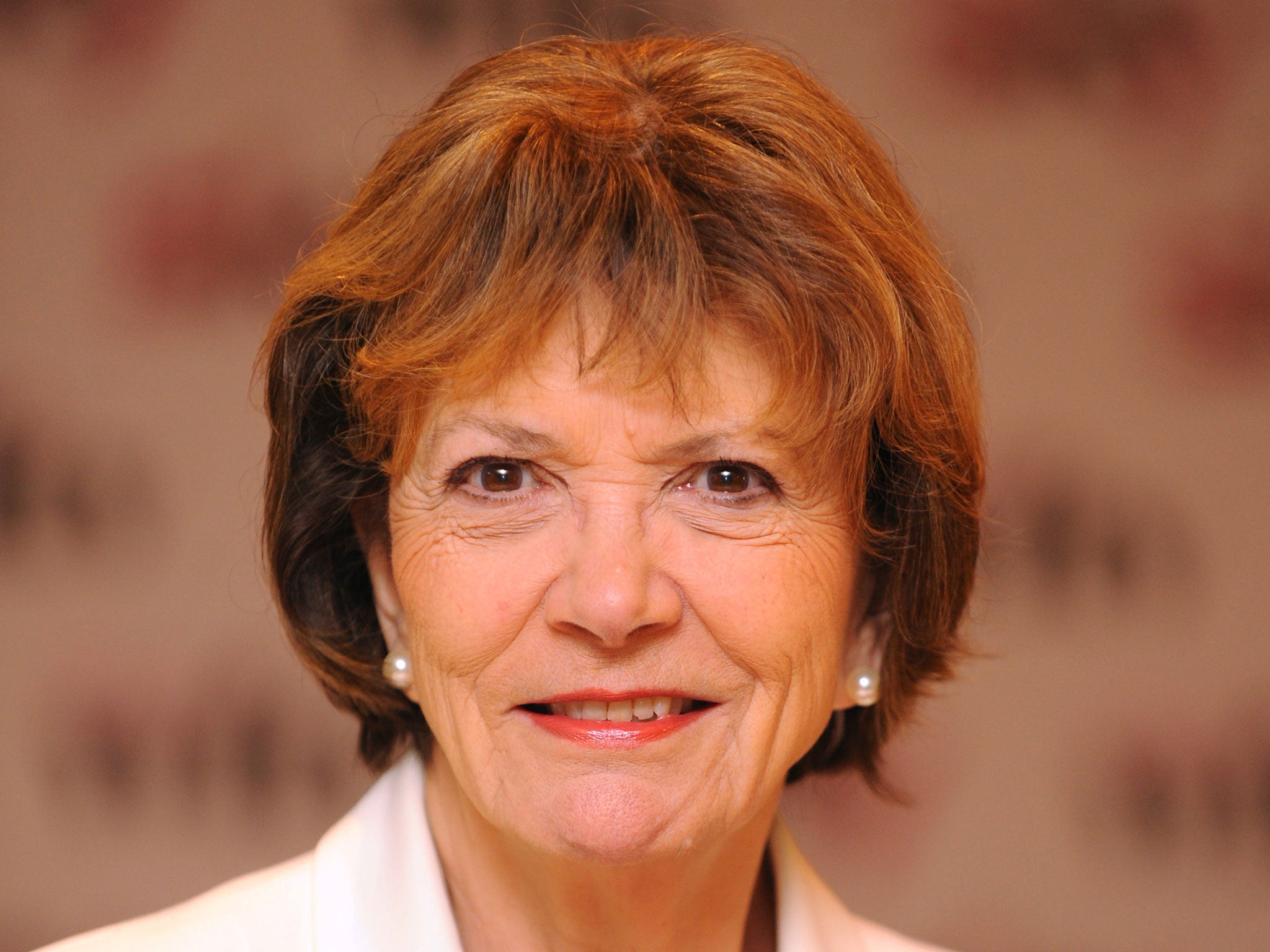BBC needs 'huge reforms', says veteran broadcaster Baroness Bakewell
Lady Bakewell has worked for the BBC since the 1960s, including on Late Night Line-Up, Newsnight and Heart of the Matter

Your support helps us to tell the story
From reproductive rights to climate change to Big Tech, The Independent is on the ground when the story is developing. Whether it's investigating the financials of Elon Musk's pro-Trump PAC or producing our latest documentary, 'The A Word', which shines a light on the American women fighting for reproductive rights, we know how important it is to parse out the facts from the messaging.
At such a critical moment in US history, we need reporters on the ground. Your donation allows us to keep sending journalists to speak to both sides of the story.
The Independent is trusted by Americans across the entire political spectrum. And unlike many other quality news outlets, we choose not to lock Americans out of our reporting and analysis with paywalls. We believe quality journalism should be available to everyone, paid for by those who can afford it.
Your support makes all the difference.The veteran broadcaster Baroness Bakewell has made an impassioned plea to keep the BBC publicly funded but added the corporation needed “huge reforms”.
Speaking at the Bath Literature Festival, Lady Bakewell said she was “unqualified” in her belief that the licence fee should be maintained. The BBC, she added, was a “cultural triumph”.
Yet, huge reforms are needed due to the “multitude at managerial levels – and the suits”.
Lady Bakewell has worked for the BBC since the 1960s, including on Late Night Line-Up, Newsnight and Heart of the Matter. “It wasn’t a hub of creativity; it was a hub of management, which is what it remains,” she said of her earlier days at the corporation.
The Culture, Media and Sport Select Committee recently criticised the BBC’s Director-General, Lord Hall, for failing to tackle the many tiers of management. The royal charter governing the BBC is to be renewed before the end of the year, with the Culture Secretary, John Whittingdale, preparing to publish a White Paper setting out the plans for the BBC.
Lady Bakewell warned that “vultures are circling” to attack the BBC for commercial interest, citing rival media owners, and reiterated her support. “There’s nothing like it in the world, it’s hugely admired around the world. It makes a great difference in countries where the World Service reaches,” she said. “Its heart is in the right place, which is at the heart of British culture, British values and the very best that we have to offer.”
Lady Bakewell revealed she had been invited to take part in Strictly Come Dancing but she turned it down. “I thought they were looking for a successor to John Sergeant,” she said of the former participant, who was mocked for his two left feet.
She was discussing her new book, Stop the Clocks: Thoughts on What I Leave Behind, and revealed the two interviewees who had left the biggest impression on her.
She named Nelson Mandela, hailing “his integrity, his fluency, his charm and his resolution and his sacrifice”.
The other was Friar Timothy Radcliffe, the head of the Dominican Order at the time. “I found his exposition and his faith completely liberating.”
Join our commenting forum
Join thought-provoking conversations, follow other Independent readers and see their replies
Comments